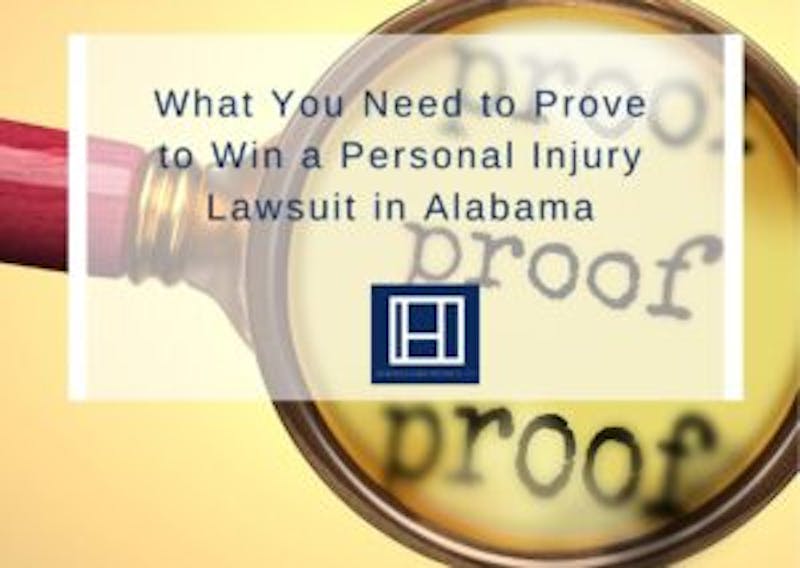
Many different situations could result in a personal injury accident. From slip and fall accidents in a grocery store to dangerous truck accidents, the negligent actions of one person can cause multiple injuries. Suppose you or your loved one has been injured in a personal injury accident, and you are looking to recover compensation for your losses. In that case, you will need to file a personal injury lawsuit.
What is the Burden of Proof in Personal Injury Lawsuits?
When you file your lawsuit, you will need to use evidence to build a legal claim that proves that you were wrong because of the defendant’s negligence or recklessness. Even if it seems like the facts of your case are straightforward, descendants and insurance companies will try to argue that their client was not negligent to avoid paying compensation. As the plaintiff, you will need to understand how the burden of proof will apply in your personal injury lawsuit.
In personal injury lawsuits, the burden of proof is on the plaintiff. The plaintiff is the injured person who is bringing the lawsuit against the defendant. In Alabama, the plaintiff must prove by a preponderance of the evidence that the defendant caused their injuries. Specifically, the plaintiff must prove that the defendant’s action or inaction caused the accident that resulted in their injuries. Gathering evidence is not enough to meet the burden of proof. Instead, plaintiffs need to present their proof in a convincing matter. When the plaintiff successfully meets their burden of proof, they can recover compensation for medical treatment, lost wages, property damage, pain, and suffering.
Schedule a Free Legal Consultation Contact Us
What Does Preponderance of the Evidence Mean?
The phrase by a preponderance of the evidence means that the plaintiff in a lawsuit in civil court must prove that what they are presenting is more likely than not true. More likely than not, the plaintiff has provided enough evidence that the judge or jury believes that the plaintiff case is at least 51% true. In other words, the plaintiff does not need to show that his or her case is 100 percent true, only that it is more likely true than not.
In a civil personal injury lawsuit, the defendant does not have to prove that he or she did not cause the accident that resulted in your injuries. They do not have to prove that their version of what happened is true, and they do not have to convince the jury of an alternative version of what the plaintiff claims. Defendants only need to present enough evidence to show that the plaintiff cannot prove that it is more likely than not that their case is true. In some cases, the burden of proof can shift to the defendant, such as when the defendant raises a factual issue as a defense strategy.
Challenges Plaintiffs Face With the Burden of Truth
Meeting the burden of proof is not always easy. To prove by a preponderance of the evidence that the defendant caused the plaintiff’s injuries, the plaintiff must overcome the challenges associated with the burden of proof. Personal injury accidents are not always as simple as they seem. Some types of personal injury lawsuits are more complex than others, such as medical malpractice lawsuits. Plaintiffs need to take enough time to investigate their case and gather evidence thoroughly.
After the investigation phase, the next challenge involves the burden of presenting evidence convincingly. It is important to work with an experienced personal injury attorney who knows how to prepare properly and present the plaintiff’s evidence. Evidence includes photographs, eyewitness testimony, personal statements, police reports, expert opinions, medical records, and more.
The evidence needs to strongly suggest that the defendant was negligent at the time of the accident. Having enough high-quality evidence will help you convince the judge or jury to make a verdict in your favor. You will need to establish that the defendant owed you a duty of care and breached that duty. You will also need to prove that the defendant was injured due to the breach, and the injuries resulted in economic and noneconomic losses.
Learn More About Your Legal Options
At Heninger Garrison Davis, we understand that personal injury cases take more time to settle them plaintiffs would like. To give yourself as much time as you need to pursue a strong legal claim to compensation, you may want to consider discussing your case with an attorney as soon as possible. Contact Heninger Garrison Davis today to schedule your free interracial consultation.
